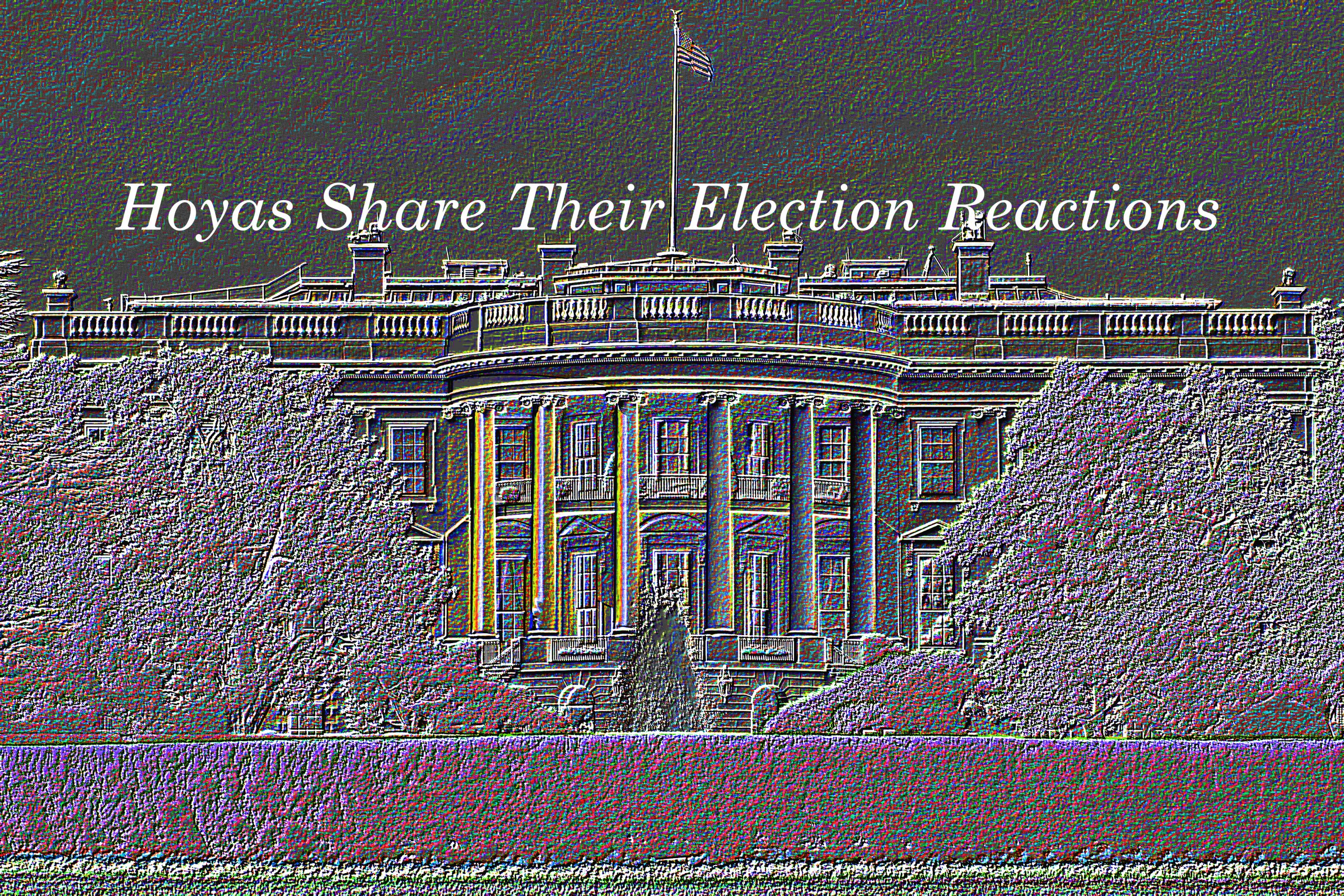The past few days have been difficult to comprehend. A majority of the Georgetown student base feels shocked, scared, and betrayed, and for good reason. Our country just elected one of the most divisive, hateful, and unqualified presidents in history. I’m as nauseous about it as anyone. How could a world superpower, a country built on diversity, equality, and shared moral values, elect a man as controversial as Donald Trump to its most prestigious office?
This question is what we need to understand.
I grew up in a small Pennsylvania town called Mountain Top. I usually tell people I meet at Georgetown that I’m from “Northeastern Pennsylvania”, because Mountain Top carries no singular name recognition. If they’re interested enough to hear more (rarely), I say I’m from a suburb of Wilkes-Barre which is a suburb of Scranton, the site of the popular TV series The Office. In reality, my parents live about forty-five minutes from Scranton.
On Tuesday, Donald Trump won my home county by 20 percent. My Congressman was one of the first in the country to endorse Trump and won re-election over his Democratic challenger by almost 30 percent. As a democrat and Hillary Clinton supporter, I am absolutely in the political minority among friends and casual acquaintances from my hometown.
I, and probably many fellow Georgetown students, have appreciated the changes in schedule by professors to allow for discussion of the election and its implications. Talking to such intelligent and thoughtful women and men has brought me hope and solace in the future of our country. But, through participating in these discussions, I’ve noticed a problem: many at Georgetown haven’t actually experienced rural, working-class areas like Northeast Pennsylvania. During a class discussion, a professor of mine asked how many students know people who are Trump supporters; less than half of the fifty-person lecture raised their hands.
Establishment politicians on both sides of the aisle have long neglected to propose policies that would benefit rural Americans, and I’ve seen this problem develop firsthand during my time in Mountain Top. Jobs have left the area and median wages have not increased, but politicians haven’t been able to resolve this problem. We saw the inability of mainstream political institutions to connect with the rural areas of the country in pre-election polling. Almost every polling service was laughably wrong, and the Princeton Election Consortium, one of the most renowned polls in the country, gave Trump less than a one percent chance of winning. But, here we are.
There are a lot of people out there who feel that they’ve been left behind, ignored, and disrespected by Washington, D.C., mainstream media, and establishment politicians, and the election has only proven this as fact. It’s been obvious throughout the whole election that rural America and Donald Trump’s campaign were not taken seriously. In many ways, a candidate like Trump who finally paid attention to this group of disregarded Americans should have been seen as a real threat. He gave supporters answers and a public voice, finally catered to their concerns of economic anxiety, and portrayed a utopian world that could be created with a snap of the fingers.
I’m sorry that so many Americans feel so underrepresented and angry at our country that they believe the answer is Donald Trump. But, it makes sense. His lack of experience in politics wasn’t seen as a disadvantage; it was a welcomed asset. He made people believe that every issue in the American world could be solved by building a wall, eliminating free international trade, and bringing back nonexistent manufacturing jobs. It is enticing to hear such simple routes to economic prosperity, and it’s clear that many felt these proposals from Trump would be achievable, helpful, and outweighed his unfiltered rhetoric and discriminatory policies.
I’m not going to sit here and say our country should succumb to bigotry, hatred, misogyny, and divisiveness. I’m not going to say we need to build a wall, to ban Muslims and refugees from entering the country, to abandon our NATO allies, to ignore climate change, to dismantle our trade agreements, and to destroy ISIS overnight and leave others to pick up the rubble. These policies, if implemented, must and will receive significant pushback. But, I also don’t think it’s practical or fair to disregard some legitimate concerns of Trump supporters. There are reasons almost half of our country voted for this man to be our next president, and we must begin to consider their plights in order to make any kind of real progress moving forward.
The lack of understanding between a lot of politicians and rural America, the catastrophic polling error seen in preparation for the election, and the absence of mainstream media coverage in these areas show me that we simply need to understand. We need to reach out to Americans more than ever, discuss their concerns, work together, and craft both short and long-term solutions to our country’s problems. We need to expand media coverage to these areas and share ideas, resources, interpretations of current events, and experiences between different groups of people.
A lot of Americans didn’t have to listen to the Syrian woman in a class of mine cry because she doesn’t feel welcome in our country anymore. They didn’t have to read the heartbreaking Facebook posts of friends fearful for the lives of undocumented relatives. They didn’t have to see the feelings of mourning and shock on this campus and listen to the negative emotions of people across the globe.
Similarly, many establishment politicians don’t understand the everyday struggles of rural Americans. They haven’t experienced their issues and haven’t seen the poverty. The economic changes these areas have undergone throughout the years have not been addressed. It’s understandable why many Americans feel unrepresented and angry.
It’s not easy to have substantive conversations with people who are so radically opposed to your views. But, it’s what is necessary. Many Trump supporters I know and have talked to find it difficult to discuss political issues with liberals like me. Similarly, many of my Georgetown friends can’t see themselves being able to empathize with Trump supporters. But, both of these actions are necessary. Those who are negatively affected by Trump’s policies must discuss these issues with the very people who support them. There must be dialogue across all lines: political, economic, ethnic, and educational. We need to understand each other, we need to craft solutions that will take the concerns of all Americans into account, and most of all, we need to move forward. Moving forward cannot continue to include the high levels of polarization we’ve seen fester over the past few years.
In times like these, it’s hard to progress as one unified country. I know it won’t be easy, but that’s what necessary. I’m asking everyone to make a concerted effort to reach out to those with opposing views and a reasonable effort to understand them. Discuss issues and propose alternate solutions. As President Obama said, “We’re not Democrats first. We’re not Republicans first. We are Americans first.” This election constructed more walls than bridges, and it’s time to begin the long process of mending those divides.
Nick is a sophomore in the School of Foreign Service.
In the wake of this election, the Voice is inviting any students, staff, or faculty to submit personal essays to our Voices section. Email the Voices editor at voices@georgetownvoice.com.





